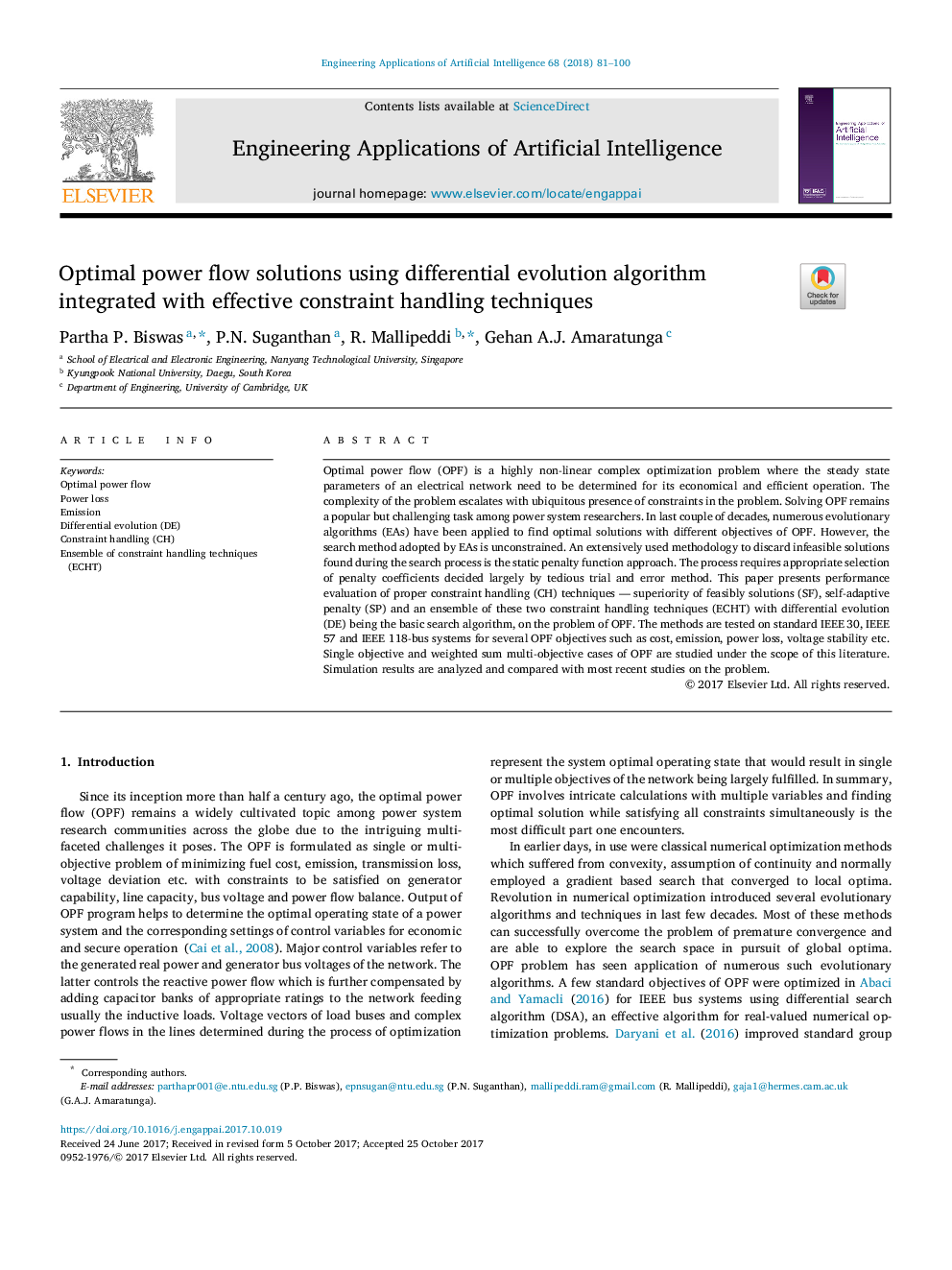| کد مقاله | کد نشریه | سال انتشار | مقاله انگلیسی | نسخه تمام متن |
|---|---|---|---|---|
| 6854270 | 1437410 | 2018 | 20 صفحه PDF | دانلود رایگان |
عنوان انگلیسی مقاله ISI
Optimal power flow solutions using differential evolution algorithm integrated with effective constraint handling techniques
ترجمه فارسی عنوان
با استفاده از الگوریتم های تکاملی دیفرانسیل بهینه شده با تکنیک های مدیریت موثر محدودیت داده می شود
دانلود مقاله + سفارش ترجمه
دانلود مقاله ISI انگلیسی
رایگان برای ایرانیان
کلمات کلیدی
موضوعات مرتبط
مهندسی و علوم پایه
مهندسی کامپیوتر
هوش مصنوعی
چکیده انگلیسی
Optimal power flow (OPF) is a highly non-linear complex optimization problem where the steady state parameters of an electrical network need to be determined for its economical and efficient operation. The complexity of the problem escalates with ubiquitous presence of constraints in the problem. Solving OPF remains a popular but challenging task among power system researchers. In last couple of decades, numerous evolutionary algorithms (EAs) have been applied to find optimal solutions with different objectives of OPF. However, the search method adopted by EAs is unconstrained. An extensively used methodology to discard infeasible solutions found during the search process is the static penalty function approach. The process requires appropriate selection of penalty coefficients decided largely by tedious trial and error method. This paper presents performance evaluation of proper constraint handling (CH) techniques - superiority of feasibly solutions (SF), self-adaptive penalty (SP) and an ensemble of these two constraint handling techniques (ECHT) with differential evolution (DE) being the basic search algorithm, on the problem of OPF. The methods are tested on standard IEEE 30, IEEE 57 and IEEE 118-bus systems for several OPF objectives such as cost, emission, power loss, voltage stability etc. Single objective and weighted sum multi-objective cases of OPF are studied under the scope of this literature. Simulation results are analyzed and compared with most recent studies on the problem.
ناشر
Database: Elsevier - ScienceDirect (ساینس دایرکت)
Journal: Engineering Applications of Artificial Intelligence - Volume 68, February 2018, Pages 81-100
Journal: Engineering Applications of Artificial Intelligence - Volume 68, February 2018, Pages 81-100
نویسندگان
Partha P. Biswas, P.N. Suganthan, R. Mallipeddi, Gehan A.J. Amaratunga,
